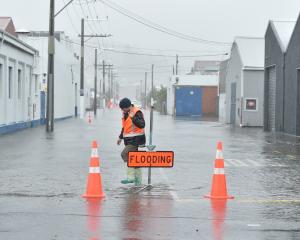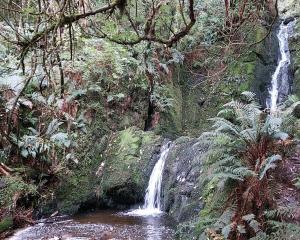
Bruce Munro talks to those asking "how did it unravel so badly'' and those saying "all is well''.
The details of the threat are recorded. If he was not so scared of the repercussions, it could all be laid bare. But he is.
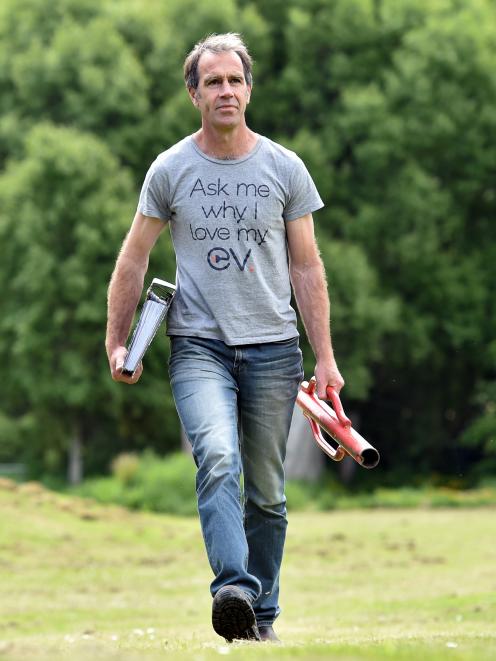
He is deeply concerned that family members would be petrified if they knew that less than two months ago his support for the Blueskin Bay wind turbine project resulted in him being threatened with physical violence, and his property threatened with vandalism.
He does not want his name or identifying details to be used.
He has considered making an official complaint to police, but he knows that the person, who he has to work with on a regular basis, has clout in the bay and could make life unbearable.
He also wonders whether it was simply a case of someone venting to get his own way.
But he then adds that, even if that is so, people "should not be allowed to suggest bad things are going to happen to people''.
The implied threat was the final straw for the Blueskin Resilient Communities Trust (BRCT) bid to build local wind power generation, Scott Willis says.
There had already been serious sabotage of equipment and a separate threat of physical violence, Willis, who is manager of the trust, says.
Those incidents, on top of the need to find $80,000 in 15 days if the trust was to appeal the Environment Court's decision to the High Court, and the lack of certainty that even if they won the appeal the $5 million wind turbine project would get the green light, saw the plug pulled.
"We decided not to appeal it to the High Court,'' Willis says.
"We were disinclined because of the threats ... I think perhaps we would have gone ahead if we'd had $80,000 and had we thought it would result in a good decision.
"But there was a real risk that if it failed we would have locked in bad legislation at the High Court level.''
For Willis, it is the end of a 20-year dream that has become a living nightmare. How did it come to this?

The question is not so much about the end of a dream to generate local wind power. Nor is it even about the death of one particular vision to build a sustainable, strong community.
The deeper question is, how has this community of ordinary, seemingly decent people granted sanction to nastiness, dishonesty, vandalism and threats of violence?
When Willis and his wife returned to New Zealand in the mid-1990s, they looked for somewhere to settle and raise a family, somewhere with a sense of community, a place where they could be hands-on, working alongside others on local and global issues.
They chose Waitati, 20 minutes north of Dunedin, one of a handful of tranquil, rural, coastal settlements centred on Blueskin Bay.
And there was progress. Lots of positive things happened, Willis says.
His boys grew up thinking Blueskin was a truly special place.
But something has changed, he says. A spirit has crept into the community that he could never have imagined and still cannot fathom.
"Community is diverse and messy,'' Willis says.
"I expected that, that's not the problem. The problem is dishonesty, manipulation, aggression and threats of violence, which to me is a move away from community and towards barbarism.''
The idea of wind power generation with local benefits came out of a community visioning workshop initiated by Willis in 2006.
In 2008, the BRCT was set up to make manifest that and other community-based dreams. Willis went from university lecturer to minimum wage trust manager.
The next couple of years were given to site testing and knowledge building.
In 2011, discussions with the various Blueskin communities was stepped up and a 30m-tall wind mast was set up to collect data on a potentially viable site, Porteous Hill, on the north side of the bay.
A couple of years later, the trust began working to lease land for three wind turbines and drafting the resource consent application for the project.
It was in October, 2015, when the consent application was lodged with the Dunedin City Council that the opposition increased and the nastiness ramped up.
There were acrimonious posts on social media. An email circulated claiming Willis was going to make money out of the project. There was a petition that Willis says was "telling terrible stories about what we were going to do''.
"If I'd come across that and I didn't have any other information, I probably would have signed that petition as well. But it was a complete and total fabrication. It was a lie,'' he says.
Public submissions on the consent application were 147 against and 153 in favour, including favourable submissions from the Otago Regional Council and the local runaka.

Dr Simon Ryan, who has lived on Porteous Hill for a dozen years and opposed the turbine project, says the nastiness, if there was any, was on the side of those in favour of the project.
The university lecturer says "dictatorial'' behaviour and misinformation by those on the trust was responsible for a "gradual process of alienation''.
"Maybe a couple of individuals have gone hammer and tongs,'' but Dr Ryan says he is unaware of any daily hostility in the bay.

Mark Brown agrees. The Waitati businessman and Waikouaiti Coast Community Board member has lived in the bay for 43 years.
The whole thing was "a non-event'', Brown says.
"Ninety percent of the community are very, very happy. And we're getting on with our lives,'' he adds.
Asked whether a perceived lack of consultation about the project upset people, he heartily agrees.
He questions any claims of unpleasant or threatening behaviour.
"Have they witnessed it, or is it just hearsay?'' he asks.
Geraldine Tait has the same question.
She is a fellow community board member, who has lived in the bay for 38 years. She is passionate about the environment and opposed to the wind turbine project.
The suggestion that people in her community are no longer talking to each other and that threats have been made are "rubbish'' with which she "totally'' disagrees.
Lots of good things are happening in the community, the wind turbine was not a big deal and it will "die away'', Tait says.
"I have friends on the other side of the wind turbine debate and nobody has turned up here and yelled in my face or thrown things at me.''
She goes on to say that it isn't unusual for neighbours to fall out, that the wind project was a "hot issue'' that made people grumpy and that there was local anger over what was felt to be inadequate consultation.

She acknowledges there may have been some "savage'' comments on social media and that some people might still feel "slightly burned and slightly annoyed''.
As to the threats, Tait asks, "Where's the evidence?''.
In the middle of last year, commissioner Colin Weatherall heard the resource consent application for three wind turbines on Porteous Hill. He gave his decision in July, declining the application.
In essence, says Willis, the commissioner kicked it for touch.
"He said, 'If you want to do it, you have to go to the Environment Court'.''
The trust decided it would appeal to the Environment Court.
It angered opponents who felt that should have been the end of the matter but were now faced with more legal costs.
Not long after that, David Robertson was threatened.
Robertson is a farmer from Merton, inland from Warrington, whose land includes the summit of Porteous Hill.
He had leased land to the commercial arm of BRCT, Blueskin Energy Ltd (Bel). It was on his land that the data collection wind mast was built.
Robertson does not want to repeat the words directed at him in the unexpected verbal barrage. But he phoned Willis immediately after the incident and confirms Willis' account.
"He had to endure half an hour of deeply offensive abuse,'' Willis says.
"He's Christian and he was sworn at and called a [expletive] Christian [expletive] who was going to get his throat cut, so he better watch his [expletive] back, because what did he think he was [expletive] doing?''

The police were keen to lay charges but Robertson did not want to, Willis says.
The Otago Daily Times understands police sought to speak to the man involved but he was not formally cautioned.
Robertson does not want to name him.
"He was angry. And he was angry because he wasn't getting what he wanted,'' Robertson says.
He believes the threat against him, and the other incidents, are the result of simple selfishness.
"All they want is not to see it [the turbine]. When you look at the judges' report and everything else, that's what it comes down to,'' Robertson says.
"It just shows that what people desire is more important than helping someone.
"That's the nature of life, it's to help people where we can, isn't it.''
Before the Environment Court hearing, an attempt at mediation had to occur. It failed after one day.
The court hearing was set for June 26, this year. By then, the trust was talking about a single, 110m-tall wind turbine.
The presiding judge had instructed reluctant owners of properties neighbouring the proposed turbine site to allow noise tests to be conducted. Those readings would be correlated against wind data from the mast, to estimate the turbine's actual noise impact.
But on March 30, at 9pm, the wind mast suddenly stopped collecting data.
Someone had used a bolt-cutter-like tool to cut the mast's multiple steel guy wires, toppling it and badly damaging its equipment.
The mast had been fitted with sensitive instruments, including wind vanes and anemometers, to record wind speed, and solar panels to provide power. All up, it was worth about $50,000.
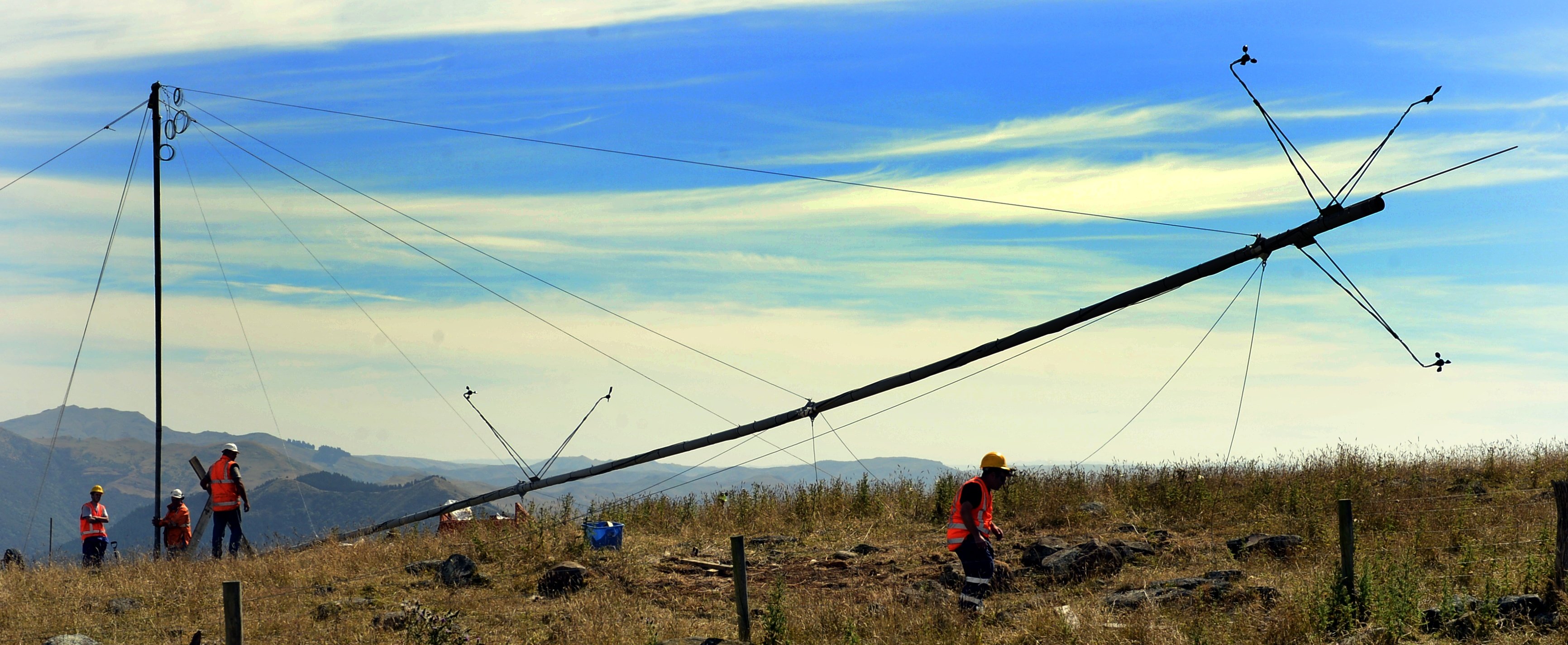
But the real damage, at that point, was the inability to collect the required data for the Environment Court hearing.
On September 11, the judge declined the appeal, saying the turbine would have negative impacts on the natural landscape and local environment.
Opponents said common sense had prevailed and that they would be "outraged'' if the trust appealed to the High Court.
The trust had 15 days to decide whether it would, or could, do that.
It was during that fortnight that the unnamed wind project supporter and his property were threatened.
On Monday, October 3, Willis declared the Blueskin wind power generation project stillborn.
Charles Abraham thinks the Trust was a force for good but failed to gain the support of those who want to call the shots in Blueskin.
A Bel director and BRCT trustee who has lived in Waitati for a decade, Abraham says the trust was wanting to ensure Blueskin was more than just a Dunedin dormitory suburb. But he believes Willis' views on climate change irked some residents.
"The area is full of opinionated people,'' he says.
"There are some who will never allow anything other than what they want to happen.''
Willis agrees he has played a part in the unravelling nastiness.
"I accept responsibility for wanting to alter the status quo,'' he says.
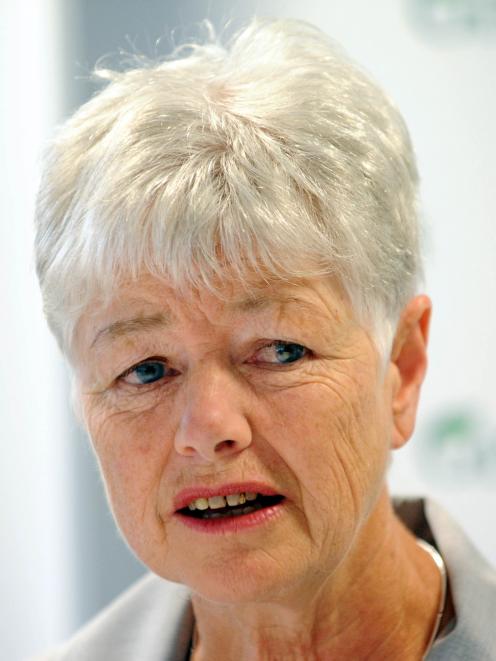
"I think we need to do things differently. I'm proud of trying to do something for my children, for the community and for the planet.''
But to him, it does not explain why people have behaved as they have. How, he asks, has "social licence been given to barbarism''?
Jeanette Fitzsimons, CNZM, says the answer may lie in what is happening internationally.
The BRCT patron and former Green Party co-leader is sure many people in Blueskin do not know all that has happened in their community over the wind project.
"But clearly there are others who are very angry about the wind turbine,'' Fitzsimons says.
She says it is hard to see why people without a vested interest in other technologies would go as far as carrying out significant vandalism and issuing threats.
Worldwide there is a movement against wind power that is being spearheaded by the fossil fuel industry, she says.
The demise of the Blueskin project could have "a chilling effect on community-owned renewable energy throughout the country'', she concludes.
Prof Hugh Campbell agrees the effect will be felt nationwide.
The former head of the University of Otago's Centre for Sustainability, and now head of sociology, says Blueskin was seen to be a leading light for how communities could transition to a sustainable future. But that reputation has taken "an absolute hammering''.
Campbell says "the great tragedy of Blueskin'' points to "the deep split that exists between old and new greens''.
The older generation of environmentalists is "all about preservation and resistance''.

Whereas the younger generation is focused on a transition to sustainability.
"Which means changing things. It also potentially means engaging in economic actions, which older green factions could all just ignore or denounce.''
He believes the wind turbine project was at the forefront of the transition approach and triggered strong reaction from older green activists.
What has happened in Blueskin also points to the conflict-prone nature of small communities, Campbell says.
"The smallness and the closeness of the protagonists amplifies conflict,'' he says.
"Then throw in New Zealand's most sacred cow, the value of property assets ...''
Without a framework and process for negotiating conflict, all hell can break loose.
Unfortunately, Blueskin might be stuck in that state of conflict.
Dr Janet Stephenson pointed to the possibility when she gave expert evidence to the Environment Court hearing on the wind turbine project.
Director of the University of Otago's Centre for Sustainability, she has researched the social impact of wind farms worldwide.
Stephenson told the court that, typically, communities like the idea of wind turbines at first. Then, fears about negative impacts see things turn sour, particularly during the proposal stage. But, she said, acceptance climbs again once the build is complete, people get familiar with the wind turbines and see their fears were unfounded.
Blueskin never got beyond the proposal stage. That negative phase is where the community still sits. Despite that, everybody is trying to find their own way forward.
Some of those involved, such as Brown, say it is easy. As he said, "We're getting on with our lives''.
Although it may be a little trickier than he hopes.
After talking to the Otago Daily Times, Brown phones back and leaves a message. He definitely has not seen any nastiness in the Blueskin community, he says, and he is "perturbed'' to think that people are saying anything different.
For Willis, some days are better than others.
"I must say, it's been hard this week, I don't know why. I might be being over-sensitive; I just don't want to see these nasty and dishonest people.
"It's shaken my faith in our ability to do things in this community.''
He does not want to "fight fire with fire'' but also says he will not be cowed by it and will "call out that type of barbarism and violence and threats and post-truth''.
"I see part of our role has to be to try to lance the boil; to talk about how such things happen and to try to ensure we avoid it in the future.
"One part of me is really angry and upset. But I don't want to become bitter, so I want to find a pathway to comprehension and acceptance.''
The unnamed man, who eight weeks ago was threatened with violence, perhaps most fully embodies how Blueskin Bay appears to be dealing with what has taken place.
"Am I being cowardly? Should I be standing up? Probably,'' he says.
But after a lifetime of avoiding conflict to repress simmering anger, which in that moment of threat he felt rising in his veins like white-hot magma, he has deliberately put the incident back in its box, closed the lid and placed it on a high shelf, where it still shakes with rage, be it ever so slightly.




